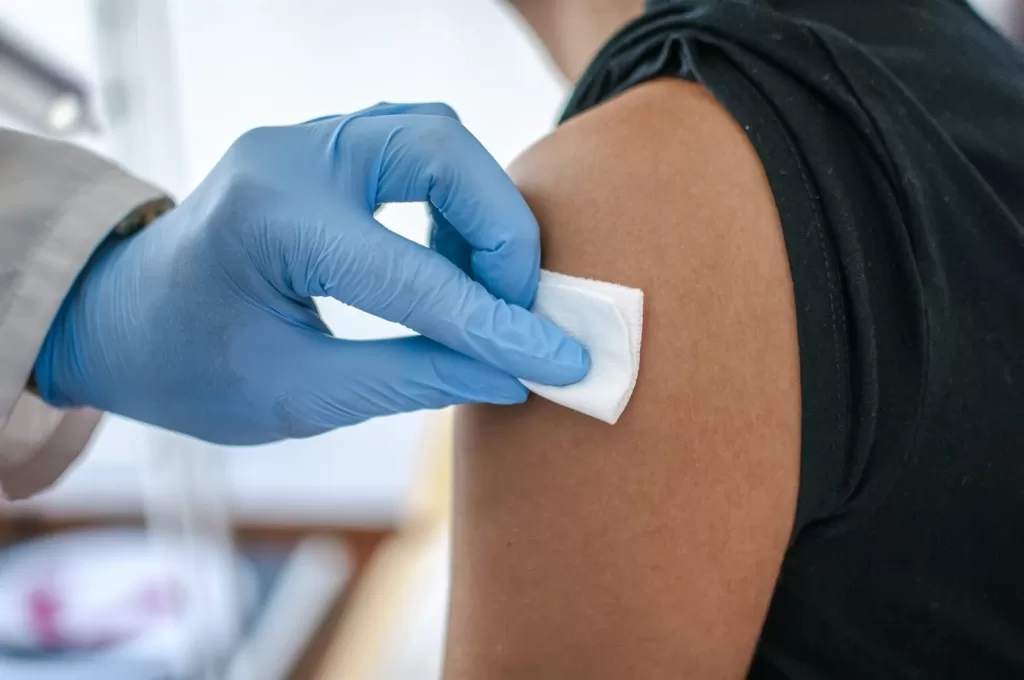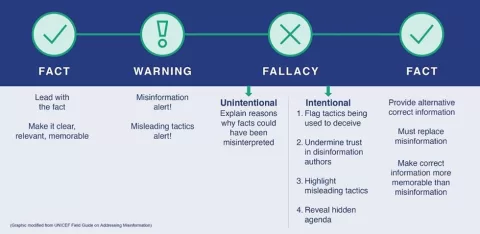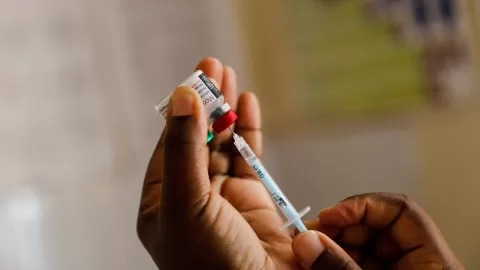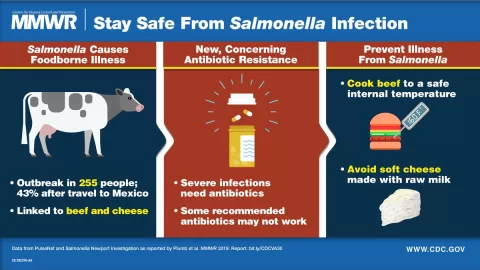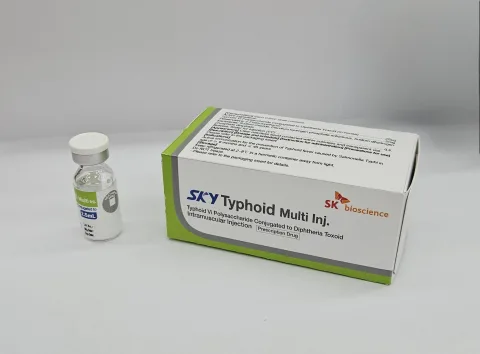The NmCV-5 vaccine is poised to change the landscape of meningitis prevention, particularly in regions plagued by high incidences of meningococcal disease. Recent findings from a phase 3 trial indicate that this pentavalent meningitis vaccine is effective and safe for inclusion in routine childhood immunization programs. The vaccine targets five different strains of Neisseria meningitidis, thus offering broader protection than traditional vaccines. With its introduction, healthcare providers can significantly reduce the risk of life-threatening meningitis outbreaks that affect infants and toddlers, especially in sub-Saharan Africa. As countries begin to adopt the NmCV-5 vaccine, the potential for saving lives and decreasing healthcare burdens grows increasingly promising.
Known under various terms, the NmCV-5 vaccine—often referred to as a pentavalent meningitis vaccine—acts as a critical tool in combating bacterial infections that can lead to meningitis. This innovative meningococcal vaccine was developed in response to the alarming rates of meningococcal disease that afflict young populations, especially in high-risk regions. With its multi-strain coverage, the vaccine meets a critical need for improved routine immunization against potentially fatal illnesses. Phase 3 trial results highlight its effectiveness, paving the way for its integration into public health strategies. As nations address the challenges posed by meningitis, alternatives like the NmCV-5 vaccine are essential for enhancing child health and safety.
Introduction to the NmCV-5 Vaccine
The NmCV-5 vaccine is a groundbreaking development in the prevention of meningococcal disease, a serious and often deadly infection. Developed to target five strains of Neisseria meningitidis, this pentavalent vaccine represents a significant advancement in routine immunization efforts, particularly in high-burden areas like sub-Saharan Africa. The vaccine aims to combat the persistent threat of meningitis, especially in countries classified within the meningitis belt, where such infections lead to frequent epidemics and elevated mortality rates.
Recent findings from a phase 3 clinical trial, highlighted in *The Lancet*, showcase the safety and efficacy of the NmCV-5 vaccine in children aged 9 to 15 months. This new vaccine’s potential extends well beyond immediate health impacts; it proposes a long-term solution to reducing morbidity and mortality rates associated with meningococcal outbreaks. As countries strategize to enhance their immunization schedules, NmCV-5 could become a cornerstone in protecting vulnerable populations from this deadly disease.
Safety and Efficacy of NmCV-5 in Phase 3 Trials
The phase 3 trial that evaluated the NmCV-5 vaccine included comprehensive safety assessments and immunogenicity responses in infants who had completed their routine vaccinations. Within the study, no serious adverse events were linked to the administration of the NmCV-5 vaccine, emphasizing its safety profile when administered alongside other routine immunizations. This is critical for encouraging healthcare providers and families to include this vaccine in their healthcare strategies.
Moreover, the NmCV-5 vaccine demonstrated non-inferiority to the established MenACWY-TT vaccine, a quadrivalent formulation, in terms of generating protective immune responses across all targeted serogroups. The robust immune responses against serogroups A, C, W, Y, and the newly included serogroup X underscore the importance of this vaccine in the fight against meningococcal disease, particularly in regions suffering from recurrent outbreaks.
The Need for Routine Immunization Programs
In regions afflicted by high rates of meningococcal disease, routine immunization programs are essential for protecting children and reducing outbreak risks. With the integration of the NmCV-5 vaccine into routine immunization protocols, countries can enhance their public health infrastructure and better equip themselves to handle potential meningitis outbreaks. Such programs not only focus on vaccination but also emphasize increasing awareness of the disease and the necessity of vaccination among parents.
The transition to include NmCV-5 in routine immunization schedules is not merely logistical—it represents a critical public health strategy aimed at preventing morbidity and mortality from diseases like meningitis. As seen in the recent implementation in Nigeria, it is vital for other countries within the meningitis belt to follow suit, ensuring that emerging vaccines can be effectively utilized to curb disease incidence.
Global Impact of the NmCV-5 Vaccine
The introduction of the NmCV-5 vaccine holds immense potential for global public health, especially in areas historically burdened by meningococcal disease. As the first vaccine to address serogroup X, its global impact can be profound, providing hope that similar successes can be achieved as seen with the MenAfriVac initiative targeting serogroup A. Incorporating NmCV-5 into routine immunization programs not only addresses current health challenges but significantly reduces the potential for future epidemics.
Furthermore, the affordability of approximately $3 per dose makes the NmCV-5 vaccine a feasible option for low-resource settings, ensuring that access does not create barriers to prevention. This financial viability, coupled with strong clinical efficacy, positions it as a key player in the strategic fight against meningococcal disease worldwide, providing a pathway to enhancing public health and improving life expectancy in vulnerable populations.
Meningococcal Disease: A Continuing Challenge
Even with advancements in meningitis vaccines, the threat posed by meningococcal disease remains significant, particularly in sub-Saharan Africa’s meningitis belt. Incidences of serogroups C, W, and X have continued to plague these regions, highlighting the need for ongoing vigilance and effective vaccination strategies. The challenges are compounded by limited healthcare access and public awareness, which necessitate consistent global cooperation and advocacy for vaccine implementation.
The history of meningococcal outbreaks showcases a public health crisis that requires multifaceted intervention. Routine immunization, like the potential deployment of NmCV-5, is critical to curtailing the trends of disease spread and ensuring high levels of immunity within communities. Ensuring that children receive timely vaccinations will be instrumental in safeguarding future generations against this preventable but deadly disease.
Collaboration in Vaccine Development and Distribution
The success of the NmCV-5 vaccine exemplifies the importance of global collaboration in vaccine development and distribution. Initiatives led by organizations like PATH and the Serum Institute of India underscore how partnerships can accelerate advancements in public health. These collaborations have been pivotal in producing effective vaccines tailored for the populations most at risk of meningococcal disease, ensuring that newly developed vaccines reach those in need.
Strategic collaborations also facilitate knowledge sharing, resources, and funding necessary for robust vaccination programs. By pooling expertise and financial resources, nations can better address the complexities of disease prevention and immunization. This collective effort is vital in making effective vaccines like NmCV-5 accessible, thus promoting healthier communities worldwide.
The Role of Global Health Organizations
Global health organizations play an integral role in the promotion and implementation of vaccines like NmCV-5. Their mandates often include the evaluation and endorsement of new vaccines, focusing on their significant impact on improving health outcomes in susceptible regions. The recent recommendation by the World Health Organization emphasizes the need to integrate NmCV-5 into routine immunization programs to tackle meningococcal disease effectively.
These organizations also help countries navigate logistical challenges in deploying new vaccines, including supply chain management and healthcare provider training. By offering guidance and support, global health bodies ensure that vaccinations reach the populations that need them the most, making strides in controlling preventable diseases associated with meningococcal bacteria.
Future Perspectives on Meningitis Vaccination
Looking forward, the ongoing research and implementation of vaccines like NmCV-5 presents a promising horizon for meningitis prevention. Experts indicate that achieving widespread vaccination coverage can significantly lower the incidence of invasive meningococcal disease, improving public health across Africa. The ongoing phase 3 trials seek to provide additional data on vaccine effectiveness in younger populations, which will be crucial for comprehensive immunization strategies.
The global health community continues to advocate for robust immunization initiatives that will adapt to emerging health challenges. This foresight implies a commitment not only to current vaccines but also to continuous research and development of new immunological strategies to combat meningococcal disease, enhancing public health resilience for future generations.
Community Engagement and Meningococcal Awareness
Effective implementation of the NmCV-5 vaccine also hinges on community engagement and education. Public health campaigns are essential in raising awareness about meningococcal disease symptoms and the importance of timely vaccination. Ensuring that parents and caregivers understand the risks associated with meningitis and the benefits of vaccination can significantly increase uptake rates and community support for immunization programs.
Engaging local leaders and healthcare providers in educational outreach can foster trust and encourage communities to participate in vaccination efforts. As seen with previous vaccination campaigns, grassroots involvement has proven effective in changing public perceptions and increasing vaccine acceptance, ultimately leading to better health outcomes and reduced disease incidences.
Frequently Asked Questions
What is the NmCV-5 vaccine and how does it work against meningitis?
The NmCV-5 vaccine is a pentavalent meningococcal conjugate vaccine designed to protect against five strains of Neisseria meningitidis, specifically serogroups A, C, Y, W, and X. It works by inducing a robust immune response, helping the body recognize and combat these bacteria, thereby preventing meningococcal disease.
How effective is the NmCV-5 vaccine in phase 3 trials?
In phase 3 trials, NmCV-5 demonstrated non-inferiority compared to the MenACWY-TT vaccine, showing similar immune responses across all five serogroups. The results indicated that the vaccine was effective in generating protective immunity in infants and toddlers, crucial for routine immunization in regions with high meningitis incidence.
What are the primary benefits of introducing the NmCV-5 vaccine in routine immunization programs?
The introduction of NmCV-5 in routine immunization programs is significant because it offers protection against additional strains of meningococcus that are not covered by existing vaccines, particularly serogroup X. This can help reduce the incidence of invasive meningococcal disease and save lives in high-burden areas.
Is the NmCV-5 vaccine safe for infants and young children?
Yes, the NmCV-5 vaccine has been shown to be safe for infants and young children in clinical trials, with no serious adverse events related to the vaccine reported. It can be administered alongside routine childhood vaccinations, simplifying the immunization process.
What impact does the NmCV-5 vaccine have on meningococcal disease outbreaks in Africa?
The NmCV-5 vaccine has the potential to significantly reduce meningococcal disease outbreaks in Africa, particularly in the meningitis belt. Its ability to provide immunity against serogroups C, W, Y, and X can help prevent the frequent epidemics that occur in this region.
When was the NmCV-5 vaccine recommended for use in routine immunization programs?
The World Health Organization recommended the incorporation of NmCV-5 into routine immunization programs for countries in the meningitis belt in October 2023, following successful phase 3 trial results.
How does NmCV-5 compare to previous meningitis vaccines?
NmCV-5 is a significant advancement as it is the first vaccine to include serogroup X, supplementing the existing MenAfriVac vaccine, which primarily targeted serogroup A. This broader coverage enhances protection against multiple strains of meningococcal disease.
What are the costs associated with the NmCV-5 vaccine?
The NmCV-5 vaccine is estimated to cost around $3 per dose, making it a cost-effective option for public health programs aiming to combat meningitis in resource-limited settings.
What age groups are targeted for the NmCV-5 vaccine?
The NmCV-5 vaccine primarily targets infants and toddlers, particularly those at 9 and 15 months of age, which aligns with the routine immunization schedule in many countries.
Where has the NmCV-5 vaccine been implemented?
As of April 2024, Nigeria became the first country to implement the NmCV-5 vaccine as part of its routine immunization program, with plans for broader distribution in other countries within the meningitis belt.
| Key Point | Details |
|---|---|
| Phase 3 Clinical Trial Results | The trial found NmCV-5 effective in providing protection against five meningococcal strains. |
| Target Demographic | Infants and toddlers aged 9 and 15 months in Mali. |
| Vaccine Comparison | NmCV-5 compared with the MenACWY-TT vaccine. |
| Trial Safety | NmCV-5 displayed a safety profile similar to MenACWY-TT with no related adverse events reported. |
| Meningitis Burden | Meningitis epidemics are common in the meningitis belt of sub-Saharan Africa, highlighting the need for effective vaccines. |
| Vaccine Affordability | Costing approximately $3 per dose, promoting public health accessibility. |
| Future Implementation | Nigeria was the first country to implement NmCV-5 in its immunization program post-trial. |
| Research Support | Support from WHO and other international health bodies for incorporating NmCV-5 into routine immunization. |
Summary
The NmCV-5 vaccine represents a significant advancement in the prevention of meningococcal disease by effectively targeting five different serogroups. This phase 3 trial has confirmed that NmCV-5 can be safely administered alongside routine childhood vaccines, making it a critical tool in addressing the high burden of meningitis in sub-Saharan Africa. Its affordability and protective efficacy make the NmCV-5 vaccine a promising solution for reducing mortality and morbidity associated with invasive meningococcal disease, particularly in regions most at risk.
The content provided on this blog (e.g., symptom descriptions, health tips, or general advice) is for informational purposes only and is not a substitute for professional medical advice, diagnosis, or treatment. Always seek the guidance of your physician or other qualified healthcare provider with any questions you may have regarding a medical condition. Never disregard professional medical advice or delay seeking it because of something you have read on this website. If you believe you may have a medical emergency, call your doctor or emergency services immediately. Reliance on any information provided by this blog is solely at your own risk.



